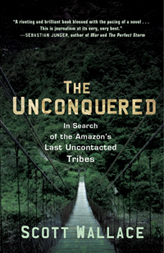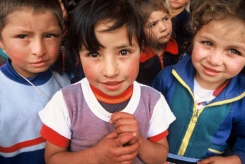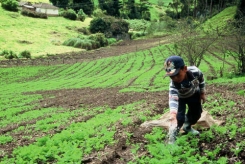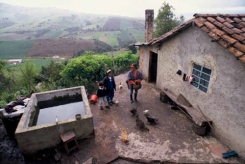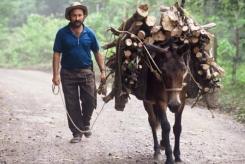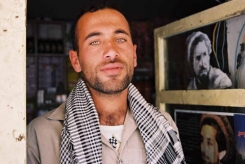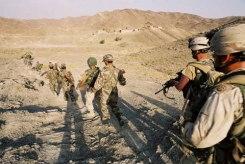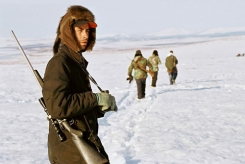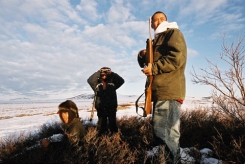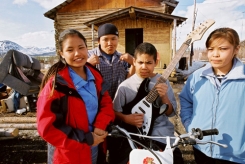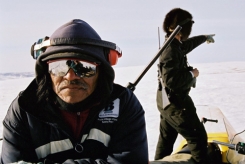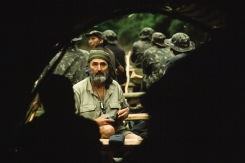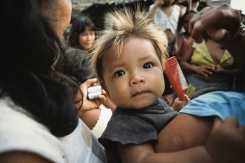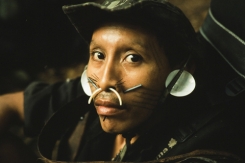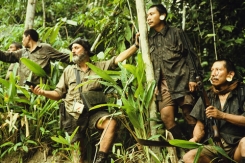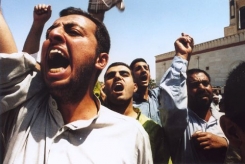Uncontacted Group Kills Two Natives in Ecuador
March 11th, 2013Posted to National Geographic
Reprisals, “forced contact” campaign feared after attack in Yasuní National Park
Native officials and conservationists fear possible reprisals in eastern Ecuador following an attack by uncontacted tribesmen that killed two Waorani Indians last week.
According to a preliminary investigation by officials from the Orellana Province public prosecutor’s office, the victims were speared to death last Tuesday morning while walking near their village of Yarentaro, located along the Maxus Oil Road within the Yasuní National Park. The victims were identified as Ompore Omeway, 70, and his wife, Bogueney, 64.
An elderly woman named Nemongona is said to have witnessed the attack after she fell behind the couple during their walk in the forest. In a statement released by the Organization of the Waorani Nationality of Orellana (ONWO), the witness said the assailants belonged to a clan of Taromenane , a branch of the Waorani who spurned contact with evangelical missionaries in the 1950s and continue to roam the forests of Yasuní as nomads.
As I reported in “Rain Forest for Sale,” National Geographic, January 2013, the contacted Waorani and their elusive bretheren maintain a complicated relationship, characterized by both fear and admiration. Contacted Waorani villagers often cultivate crops for their nomadic relatives to take as they wish, but they also remain wary of a people who have yet to be “civilized” and resort to violence in response to perceived threats.
ONWO’s statement indicates that the victims had sustained previous encounters with the elusive Taromenane, who reportedly conveyed their growing irritation over an influx of outsiders and increased industrial activity in the zone. The victims may have been attacked because of their inability to effectively channel the complaints. The incident occurred in the environs of an oil processing facility operated by the Spanish energy company REPSOL.
The Yasuní rain forest harbors some of the richest biodiversity in the world, as well as two uncontacted clans of Waorani, the Taromenane and the Tagaeri. But the region also holds large deposits of petroleum, and oil exploration continues to advance within the boundaries of the national park. Government agencies and oil companies are required to avoid activities that would endanger the wellbeing of the isolated indigenous groups. The government of President Rafael Correa has offered to postpone indefinitely oil exploration in the far eastern portion of the Yasuní in exchange for $3.6 billion in compensation from the international community.
ONWO has called on the government of Ecuador to immediately implement “precautionary measures” to protect the Taromenane and Tagaeri and vigorously opposes any efforts to make “forced contact” with the groups, as some authorities are advocating. Meanwhile, Waorani officials are seeking to dissuade relatives of the victims from launching a reprisal raid, which could have disastrous consequences for contacted and uncontacted Waorani alike.
Leaders of another native rights group, the Waorani Nationality of Ecuador (NAWE), say that oil exploration and illegal logging in the region have put mounting pressure on the isolated groups.

